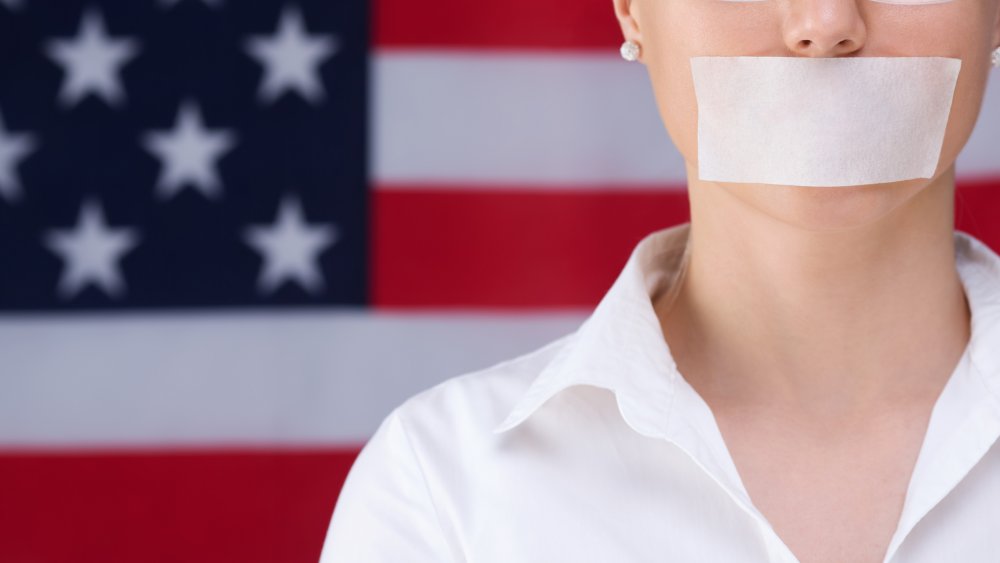Here's Everything That's Illegal To Say In The United States
There's one argument shared by both the hate groups screaming outside of soldiers' funerals, and the high school sophomores who just called their Spanish teacher a word that they learned on Letterkenny: "It's a free country, brah. I can say what I want." Americans love talking about free speech. Or, more accurately, they love the idea of free speech ... even if they miss the fine print of the actual Constitution.
Not to knock the spangled stars off your banner, but there's an extensive variety of "free speech exceptions," combinations of words that can still land you with a hefty fine or prison sentence. Some of them fall under the category of common sense: 18 U.S.C. 871 states that it's illegal to threaten the well-being of the President or his immediate successors: this includes stating that you will, or would like to, hurt, kill, or kidnap whoever's occupying the Oval Office, presidential candidates, VPs, and former Presidents. If you've ever wanted to meet a Secret Service agent in person, violating 18 U.S.C 871 is a great way.
Similarly, it's illegal to incite "imminent lawless action," so any attempts at starting Helter Skelter Part II won't attract much help from the ACLU. What's interesting about this one is that advocating for violence isn't, in itself, illegal. It's only a crime if the stuff you say poses an immediate threat, thanks to a 1969 Supreme Court case won by the Ku Klux Klan.
Somehow, the details just get more disconcerting from there.
Watch your mouth
There's actually a shocking amount of wiggle room in terms of what you can be arrested for saying. For instance, did you know that you can still go to jail for being too rude?
It's true! The 1973 Supreme court case of Miller v. California supplied what's called the "Miller test," wherein speech can be held up to three astonishingly subjective standards: according to Cornell Law, "whether 'the average person, applying contemporary community standards" would find that the work,"taken as a whole," appeals to "prurient interest," whether the work depicts or describes, in a patently offensive way, sexual conduct specifically defined by the applicable state law, and whether the work, taken as a whole, "lacks serious literary, artistic, political, or scientific value." If you're a stand-up comedian, and the tight five that you're working out at Ha Ha's doesn't meet those criteria, congratulations, you're breaking the law.
Here's another good one: "Fighting words." According to Justia, "The First Amendment does not protect fighting words, which are those that inherently cause harm or are likely to result in an immediate disturbance." Another example? A 2017 Supreme Court decision (reported on by the New York Times) ruled that speech isn't protected if it's intended to make a person kill themselves, basically turning every Halo voice chat into a lawless verbal sprawl.
Does any of that seem unfair? Feel free to speak up. Just choose your words carefully.

